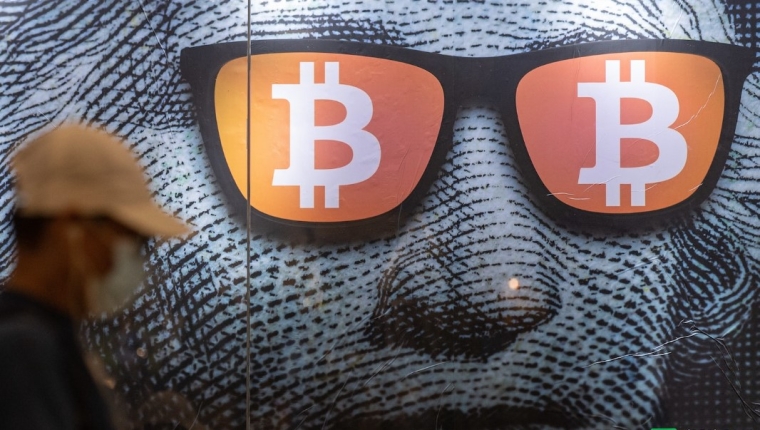
It's difficult to appreciate just how much of cryptocurrency Bitcoin is taken on sheer faith, but you could start with the fact that it's not public knowledge who created it. Well, it's meant to be someone hiding behind the pseudonym Satoshi Nakamoto who has pretty decent operational security as the person's actual identity remains a secret.
There you have it: a digital instrument of little practical use but one that people attribute a great deal of value to, created by someone who might only be known to themself, and which is running on a transaction verification database that's not well understood by most people. Bitcoin might be knee-deep in technology and couldn't exist without it, but there's a definite mystic human aspect to it.
Now there's an HBO documentary out, Money Electric, which claims Bitcoin core developer Peter Todd is Satoshi Nakamoto. Todd is quite clear that he isn't.
The reason it's so important to unmask Nakamoto is of course curiosity. It is also most likely down to the person in question thought to be sitting on up to 1.1 million Bitcoin. Money exchange site Xe.com reckons that's about NZ$107.3 billion, although who knows exactly how much it would actually translate into, given Bitcoin's value swings wildly up and down.
Either way, that's a big chunk'o'change, and Todd has every reason to feel uncomfortable at being named as Nakamoto. He posted this on TwitterX:
I probably shouldn't admit it... But @JoeNakamoto's mostly right.
— Peter Todd (@peterktodd) October 9, 2024
This nonsense is a genuine danger, as crazy people might try to get my non-existent fortune. But it's also hilarious.
Thing is, I didn't trick @CullenHoback. I think he just needed a stunt to hype up his film. https://t.co/vs60kcEqaG
We hear of hacks and exploits to steal cryptocurrency from exchanges and digital wallets, but increasingly, there's also plain old violence being involved in the robberies.
Elsewhere on social media, it was pointed out that tax authorities might take the allegations as to Nakamoto's identity seriously and demand their share of unrealised capital gains.
Over the years, a number of people have been "outed" as Satoshi Nakamoto. This includes most of the original Bitcoin developers but also an actual Dorian Prentice Satoshi Nakamoto living in California. Who, by the sounds of it, didn't enjoy his time in the media limelight.
One person has however sought to be Satoshi Nakamoto, and that's the litigious Australian Craig Wright. Despite legal wrangling, he is the only one so far to have been officially declared not being Nakamoto, as per a scathing judgment handed down by a British court earlier this year.
The hunt for Nakamoto's real identity will no doubt continue, and we haven't seen the last of the pursuit. An unnamed crypto person suggested to me that Nakamoto is in fact a group of people, employees of the United States National Security Agency (NSA) and Britain's Government Communications Headquarters (GCHQ). They're cryptographers who want to use the technology for copyright purposes, and don't need to touch the original Bitcoin. Or something like that, it's not clear to me at this point what this is about. If I figure it out, err, it'll be explosive. I'm pretty sure of that.
9 Comments
Spoiler alert: we are all Satoshi.
No he has not been found.
Even the slightest cursory glance shows this to be fake.
They had evidence along the likes of them liking the same kind of pizza topping.
Guy is WAY too young as well to be developing BTC in 2008-2009.
The hilarious thing is they managed to come up with someone who is far less likely to be Satoshi, than than the people expected to be named in this. Both of whom are dead, and are also quite unlikely to have been Satoshi (But it was at least possible).
Satoshi's foresight to maintain anonymity and completely disappear was amazing. This is one of the great stories of our time, and the major reason why Bitcoin will never be replicated or replaced by 'something better'. It's not just the technological problem they solved, you simply cannot ever replicate the circumstances of it's birth and organic adoption over time. It's the unique combination of all these factors that led to the continually increasing trust and belief in it as a form of money.
They'll never find me.
I mean him. They'll never find him.
We don't know SN's pronouns. Based on an ideal world, Nakamoto would use 'We'. Ultimately nobody should care about SM's gender, sexual preferences, identify, etc.
The idea that BTC was created by the NSA is plausible and fits with the idea of a cunning plan for a monetary reset. If it were reality, Nakamoto's stack would likely belong to the US government and a banking cartel.
Nice angle. It's an interesting project for sure and I really like its anti FIAT and anti central banking stance.
Satoshi understood the frailties of the monetary system. And essentially that's one of the core problems to solve for BTC. Doesn't mean it's the only solution to solve a myriad of issues.
HBO just trying to gain temporary viewers from the crypto investors... what a wast of money and effort to make this docco.

We welcome your comments below. If you are not already registered, please register to comment
Remember we welcome robust, respectful and insightful debate. We don't welcome abusive or defamatory comments and will de-register those repeatedly making such comments. Our current comment policy is here.